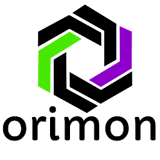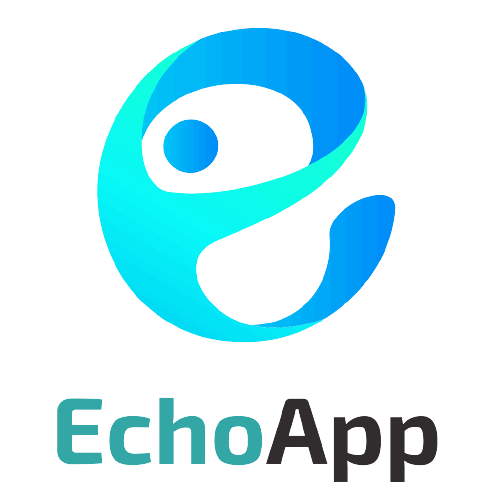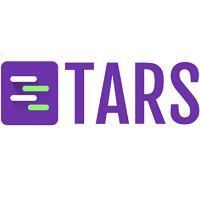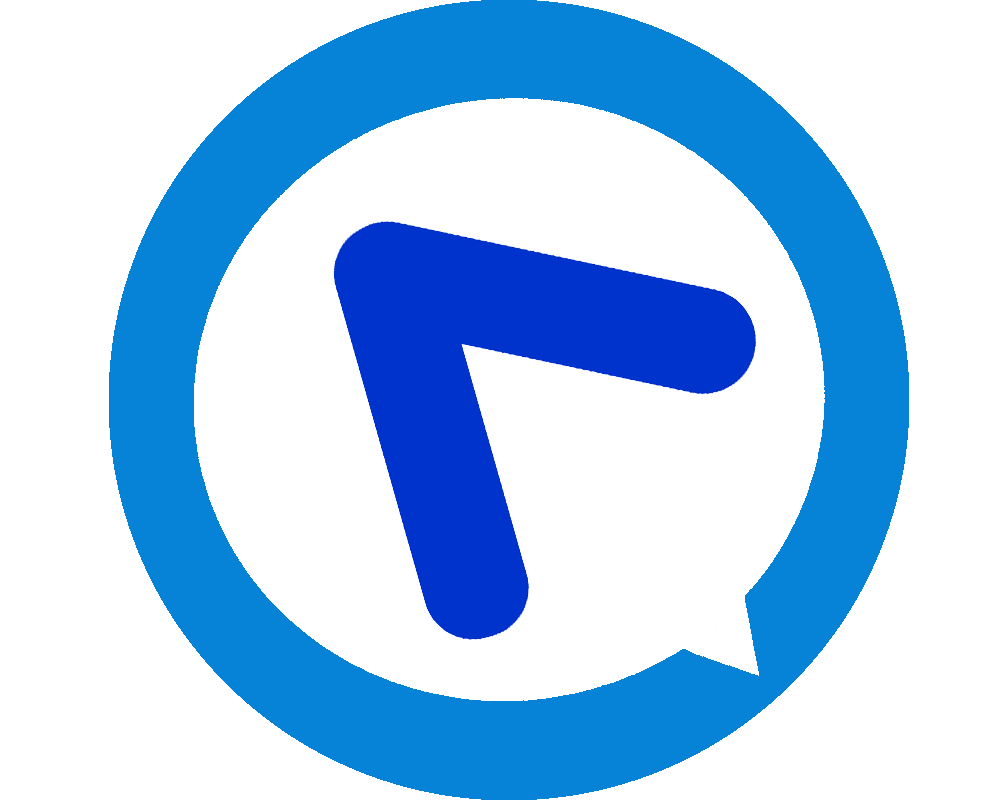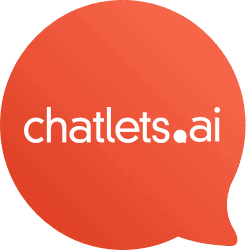What Is Conversational Marketing Software?
A digital tool called conversational marketing software allows companies to interact and speak with their clients in a conversational way. This cutting-edge application creates a smooth and customized dialogue with the clients by integrating multiple communication channels, including live chat, chatbots, and messaging apps.
Businesses may learn a lot about their customers by monitoring and evaluating their interactions, preferences, and behavior with conversational marketing software. This aids in the development of pertinent and focused marketing tactics, which raises conversion rates and improves consumer engagement. This software's capacity to offer real-time answers to consumer inquiries and tailored suggestions based on their requirements and interests is one of its primary benefits.
In addition to improving the client experience, this helps firms save time and money. Conversational marketing software is a great tool for lead generation and nurturing because it also provides automatic lead gathering and qualification. It enables companies to communicate with prospective clients, learn about their problems, and help them move through the sales funnel.
Conversational marketing software has become an essential tool for companies of all kinds and sectors in response to the growing desire for more individualized and human-like interactions in the digital world. It is a wise investment for any company trying to boost marketing since it not only increases consumer engagement and conversion rates but also expedites sales and customer service procedures.
What Are The Recent Trends In Conversational Marketing Software?
For companies trying to increase client interaction and boost sales, the emergence of conversational marketing has changed everything. The field of conversational marketing software is expanding and provides a range of platforms and solutions to enable businesses communicate with their clients in real time and provide smooth, customized experiences. What new developments in conversational marketing software should consumers be aware of, then? Let's examine.
1. AI-Powered: Chatbots Artificial intelligence (AI) has completely changed how companies interact with their clientele. Chatbots are becoming more advanced and capable of handling more complicated duties like personalized responses and product recommendations thanks to the development of AI technology. As companies strive to give their clients a more human-like conversation experience, this trend is anticipated to continue.
2. Integration Of Multiple Channels: Customers demand smooth and rapid interactions with businesses across a variety of channels in today's fast-paced world. Consequently, other platforms including social media, messaging applications, and SMS are now being connected with conversational marketing software. This trend makes it possible for companies to connect with their clients via the channel that they prefer, guaranteeing a more effective and customized experience.
3. Customization And Focus: The secret to effective conversational marketing is personalization. Businesses can use data-driven targeting and customisation tactics to help customers feel understood and appreciated. In order to customize interactions for each unique client and increase engagement and conversion rates, conversational marketing software now includes tools like customer segmentation, activity tracking, and AI-powered suggestions.
4. Conversations With Human Assistance: Chatbots are useful for automating repetitive jobs, but they cannot take the place of a human agent's skill and individualized touch. As a result, human-assisted interactions are now available through conversational marketing software, allowing a client to engage with a live agent at any time during the exchange. This hybrid strategy, which blends the personal touch of a customer support agent with the effectiveness and quickness of chatbots, is becoming more and more popular.
5. Reporting And Data Analytics: Data reigns supreme in the realm of marketing. These days, sophisticated analytics and reporting tools in conversational marketing software offer insightful data on consumer behavior and conversation performance. Businesses can use this information to enhance client satisfaction, optimize their strategies, and make well-informed decisions.
Benefits Of Using Conversational Marketing Software
Businesses of all sizes are using conversational marketing software more and more because it's a powerful tool. It provides a more individualized and interactive experience by enabling one-on-one conversations with clients using automation and artificial intelligence. We'll go over the many advantages of conversational marketing software in our buyer's guide, as well as how it may help your company.
1. Improved Customer Engagement: Conversational marketing software enables companies to interact with clients in real time, giving them prompt, pertinent answers to their questions. Stronger customer relationships and loyalty follow from higher customer pleasure and an improved overall experience.
2. Availability Around-The-Clock: Conversational marketing software enables companies to be reachable by their clients at any time, even beyond conventional business hours. Customers will benefit from better customer service and satisfaction as a result of being able to get support and answers to their questions whenever they need them.
3. Personalized Interactions: Conversational marketing software may make clients feel appreciated and understood by using data and customer information to personalize interactions. Instead of the impersonal experience of typical marketing methods, this produces a more human-like dialogue.
4. Increased Conversion Rates: Conversational marketing software is made to help clients move through the sales funnel by answering their questions, giving them pertinent information, and eventually getting them to buy. It has been demonstrated that this individualized and focused strategy greatly raises conversion rates.
5. Enhanced Efficiency: Conversational marketing software can manage many conversations at once thanks to automation and artificial intelligence, giving staff members more time to work on other projects. Businesses become more productive and efficient as a result.
6. Cost-Effective: Compared to more conventional marketing strategies like employing a sizable staff of customer support agents, the use of conversational marketing software may prove to be more economical. Additionally, it removes the need for pricey call centers, which might save firms money.
7. Useful Customer Insights: Conversational marketing software gathers useful information and insights from consumer interactions, giving companies a deeper comprehension of the wants, needs, and problems of their clients. Customer satisfaction might rise as a result of using this knowledge to enhance goods and services.
Important Factors To Consider While Purchasing Conversational Marketing Software?
To make sure you are investing in the best conversational marketing software for your company, there are a number of crucial elements to take into account. The following are important things to think about when weighing your options:
1. Conversation Type: The first consideration is what kinds of talks the software can support. Will it be mostly chat-based, or can voice and video discussions be had as well? Is it made for one-on-one communication, or is it also capable of managing group discussions? Verify if the software meets your communication requirements.
2. Integration Capabilities: The software's capacity to interface with your current tools and systems is another important consideration. To guarantee a cohesive approach to consumer contacts, it should ideally link with your CRM, email platform, and other channels with ease. This will increase the overall effectiveness of your marketing initiatives and save you time and effort when transferring data manually.
3. Intelligence And Personalization: Advanced intelligence and personalization features are essential for a successful conversational marketing program. This includes tools that may provide your clients with a customized experience, such as chatbots driven by AI, natural language processing, and dynamic content. Seek out a solution that can comprehend the conversation's context and adjust responses appropriately.
4. Multilingual Support: Selecting software with multilingual support is essential if your company has international operations. By doing this, you will be able to speak with clients in the language that they prefer, which will enhance their experience and raise conversion rates.
5. Analytics And Reporting: Having access to thorough analytics and reporting is crucial for gauging the effectiveness of your conversational marketing initiatives. Seek out software that provides comprehensive insights into engagement metrics, conversion rates, and consumer interactions. This will assist you in making data-driven decisions and pinpointing areas that want development.
6. Security And Compliance: Security need to come first when handling private client information. To safeguard the information of your customers, make sure the software you select complies with data privacy laws and has strong security features.
7. Scalability And Customization: Selecting software that can expand with your company is crucial. As your company grows, look for a scalable system that can meet your needs. Furthermore, the ability to modify the software to meet your unique needs can significantly increase its efficacy.
What Are The Key Features To Look For In Conversational Marketing Software?
Businesses aiming to engage and convert their customers through real-time discussions might benefit greatly from conversational marketing software. Customers must understand what characteristics to look for when selecting the best conversational marketing software for their needs as more businesses use this technology. The main characteristics that you should take into account before making a purchase will be covered in this buyer's guide.
1. Multichannel Communication: Verify that the conversational marketing software facilitates communication via email, social media, chat, and SMS. By doing this, you'll be able to contact more people and give your clients a flawless experience.
2. Personalization: Seek out software that provides a high degree of personalization so you may adjust conversations based on the tastes and actions of the client. This will increase the efficacy of your marketing campaigns and help you forge closer bonds with your clients.
3. Artificial Intelligence (AI): Conversational marketing software with AI capabilities can evaluate user intent, analyze customer data, and respond intelligently, enhancing the efficiency and humanness of discussions. To improve the conversational experience, look for capabilities like chatbot integrations and natural language processing.
4. Lead Qualification: The program should have the ability to divide and rank leads according to their degree of interest and participation. Your sales team will be able to concentrate on high-value leads and boost conversion rates as a result.
5. Integration Capabilities: Verify that the Conversational Marketing Software is compatible with the marketing automation and CRM programs you now use. This will allow you to build a consistent customer journey across all channels and capture and track leads with ease.
6. Analytics And Reporting: To monitor and assess the effectiveness of your chats, look for software that provides real-time analytics and reporting. In order to maximize your conversational marketing approach, this will assist you in pinpointing areas that require improvement and in making data-driven choices.
7. Compliance And security: To safeguard sensitive client data in light of the growing laws pertaining to data privacy, it is essential to select software that conforms with industry standards and has improved security features.
Why Do Businesses Need Conversational Marketing Software?
For a number of reasons, businesses require conversational marketing software. Above all, it enables them to interact with their clients in real time, which is crucial in the hectic business world of today. Businesses may engage in more meaningful engagements and increase conversion rates by using conversational marketing software to have individualized, one-on-one conversations with their audience.
Second, this kind of software gives companies useful information and insights into the interests and behavior of their clients. Conversational marketing software can evaluate and interpret consumer data with the aid of AI and machine learning to produce more focused and successful marketing campaigns. Additionally, conversational marketing software is an affordable option for companies.
Because the software can manage several conversations at once, it does away with the need for sizable sales and customer support personnel. Businesses benefit from reduced overhead expenses and increased productivity as a result. Additionally, conversational marketing software is a practical and easy-to-use tool for consumers and businesses alike. It facilitates communication and assistance by enabling clients to interact with companies using their favorite messaging apps, such Facebook Messenger or WhatsApp.
Additionally, conversational marketing software can help companies generate and nurture leads. The program can qualify leads and direct them through the sales funnel by using chatbots and automated workflows, which will ultimately increase lead conversion rates. Finally, companies can maintain a competitive edge by utilizing conversational marketing software.
Customers are growing increasingly used to having immediate access to assistance and customized experiences as e-commerce and online purchasing gain popularity. Businesses may set themselves apart and offer a better consumer experience by implementing conversational marketing software.
How Much Time Is Required To Implement Conversational Marketing Software?
Depending on the particular requirements and objectives of your company, the time required to install conversational marketing software can change. The procedure can take anywhere from a few weeks to several months on average. However, depending on variables like the complexity of your setup, the size of your team, and the degree of customization needed, this timeframe can be shorter or longer.
Understanding your goals, target audience, and intended results is essential before beginning the implementation phase. This will guarantee that the software is in accordance with your business objectives and expedite the deployment process. The first step is to choose a conversational marketing tool that best suits your requirements.
As you investigate and contrast several possibilities and arrange demos to ascertain which platform best meets your needs, this process could take some time. The program must then be integrated with your current tools and systems. This could include your website, CRM, and any additional channels of communication you choose to use. The smooth and effective operation of the software depends on this integration phase.
Create and modify your chatbots, messaging templates, and automation workflows after the program has been integrated. Depending on how complicated your setup is and how much customizing you want, this step may also take some time. Last but not least, you must test and start your conversational marketing initiatives.This phase is essential since it enables you to optimize your workflows and chatbots and make sure everything is operating as planned.
What Is The Level Of Customization Available In Conversational Marketing Software?
The degree of customisation offered by conversational marketing software is one of the most important things to take into account. This refers to the capacity to customize interactions and discussions with prospective clients in order to produce a more engaging and customized experience. When weighing their alternatives, customers should be aware of their unique demands and objectives because the degree of customisation might differ significantly throughout software options.
A high level of customization is possible with certain conversational marketing technologies, enabling companies to design customized chatbots and conversational flows that complement their messaging and brand. This could include choices to alter the chatbot's tone, phrasing, and even appearance to better reflect the company's branding.
The ability to link with other platforms and software, such CRM systems, to collect and use client data for a more tailored experience is another example of advanced customisation options. However, some conversational marketing software might only provide a small number of customization choices or pre-made chatbot designs that aren't completely customizable.
Businesses with less complex requirements or those with little funding for creating and maintaining highly customized chatbots might find this appropriate. It's also crucial to remember that the degree of customisation could affect the software's price and complexity. While basic choices might be more affordable and simpler to execute, highly configurable ones might be more expensive and need more technical know-how.
In the end, the particular software supplier and their products will determine the degree of personalization that conversational marketing software offers. To select a software solution that best suits their objectives and wants, purchasers must do extensive study and comprehend their customisation requirements.
Which Industries Can Benefit The Most From Conversational Marketing Software?
For companies trying to increase client engagement and boost revenue, conversational marketing software has become a game-changer. Through chatbots, live chat, and messaging platforms, this cutting-edge technology enables businesses to interact with their target audience in real-time and in a tailored way. Businesses in a variety of industries can profit from conversational marketing software, but some can take full advantage of its potential to accomplish their objectives. The industries that stand to gain the most from conversational marketing software.
1. E-Commerce: Giving clients a flawless buying experience is the main goal of the e-commerce sector. E-commerce companies may help with purchases, provide tailored recommendations, and provide real-time answers to questions about their products with conversational marketing software. Better conversion rates and more customer satisfaction result from this.
2. Hotel And Travel: Establishing a solid rapport with clients is essential in the fiercely competitive hotel and travel sector. Hotels, airlines, and travel agencies can interact with clients during the booking process, resolve any issues, and give prompt updates with the use of conversational marketing software. This enhances client loyalty and retention in addition to improving the customer experience.
3. Healthcare: The healthcare sector has a lot of promise for conversational marketing software. Appointment scheduling, appointment reminders, and patient inquiries on health issues can all be handled with it. In addition to saving staff and patients time and effort, this raises the standard of healthcare services generally.
4. Banking And Finance: The banking and finance sector has seen a transition to digital channels as a result of technological advancements. By delivering real-time financial advice, personalized support, and query resolution, conversational marketing software can assist banks and other financial institutions in improving their customer service experience.
5. Education: For educational institutions trying to increase student engagement, conversational marketing software is a useful tool. It can be used to give students timely updates, help them with the admissions process, and respond to their academic questions. Additionally, it makes it possible to communicate with pupils in a tailored way, which raises retention and satisfaction levels.
Conclusion
It is evident from delving into the realm of conversational marketing software that this technology is revolutionizing customer engagement. For companies of all sizes, this software has a lot to offer, from improving user experience to raising conversion rates. However, there are a few critical things to think about before deciding which conversational marketing software to buy. Decide on your budget and the things that are most important to your company first.
Finding the ideal solution for your business can be made easier if you evaluate your needs and goals. Next, think about the software's usability and simplicity of use. A lengthy or complex procedure may cause a steep learning curve and reduce the productivity of your staff. Seek a solution that your staff can readily embrace and that provides a smooth interaction with your current systems.
Furthermore, it is essential to assess the software provider's degree of customer support. A dependable support system can be crucial to guaranteeing a smooth implementation and ongoing success because, like any technology, problems or inquiries may come up. Finally, remember to evaluate the features of various software solutions and read reviews.
This will help you make an informed choice by improving your comprehension of the advantages and disadvantages of each choice. In the end, you can locate the ideal conversational marketing software that fits your budget and business objectives by taking into account all of these variables and carrying out in-depth research. Don't undervalue this technology's ability to improve consumer interaction and propel business expansion. Therefore, if you want to improve your client interactions, start investing in conversational marketing software.





